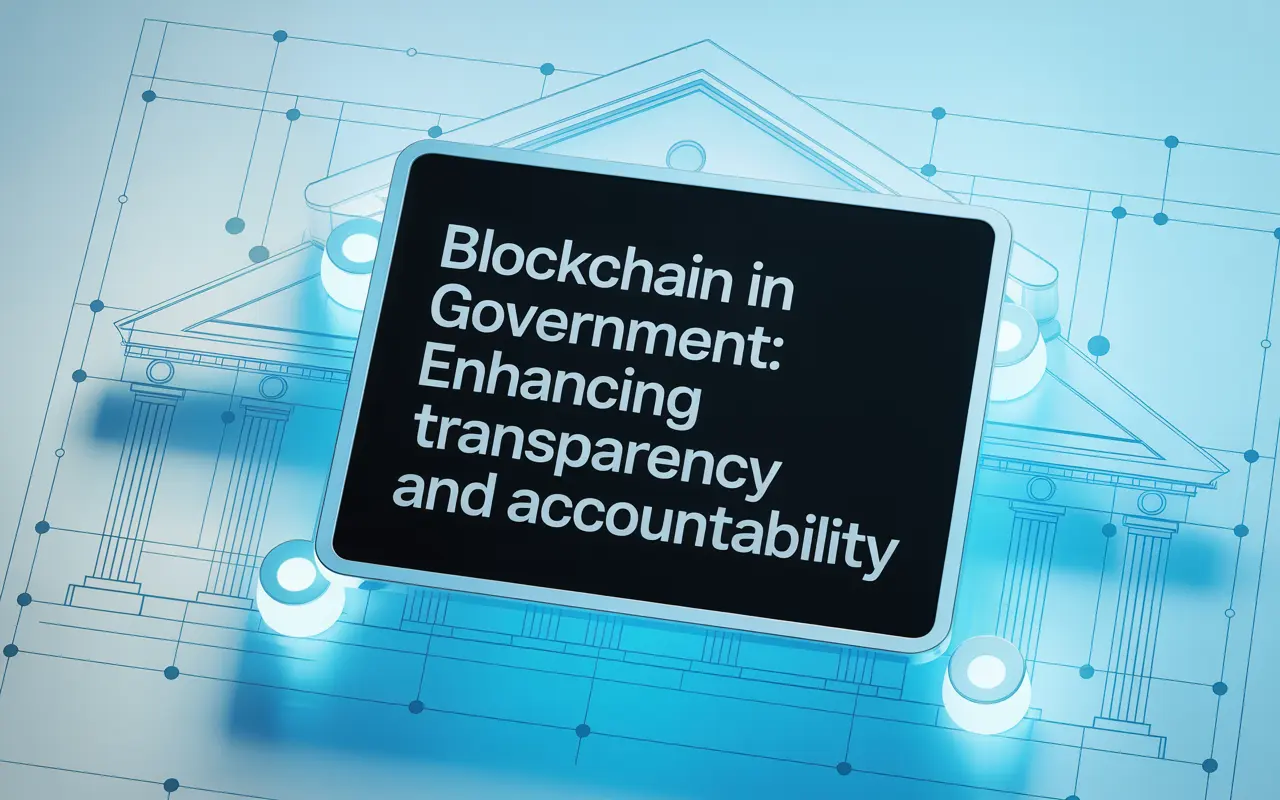Home / Blog / Blockchain in Government: Enhancing Transparency and Accountability
Blockchain technology is revolutionizing public governance by providing secure, transparent, and tamper-proof systems. Learn how governments worldwide are leveraging blockchain to improve trust, efficiency, and citizen engagement.
18 Sep, 2025

Governments are entrusted with resources, policies, and public trust. Yet, bureaucratic inefficiencies, corruption, and opaque processes often undermine confidence in public institutions. Citizens around the globe increasingly demand transparency, accountability, and secure systems.
Enter blockchain technology. Once the backbone of cryptocurrencies, blockchain’s decentralized, tamper-proof architecture is now transforming governance. By providing secure records, traceable transactions, and immutable ledgers, blockchain offers a path to rebuilding trust in government systems.
At 10turtle, we’ve helped institutions implement AI and blockchain-powered solutions that streamline operations, enhance transparency, and increase citizen engagement.
According to Deloitte, 63% of public sector executives believe blockchain will significantly impact government operations in the next five years.
Blockchain is a distributed ledger technology where transactions are recorded in a secure, transparent, and immutable manner. Unlike traditional centralized databases, blockchain provides:
In the public sector, this translates into:
Traditional government systems face several challenges:
Blockchain addresses these challenges by:
Example: Dubai’s Smart Dubai initiative leverages blockchain to digitize over 100 government processes, reducing fraud and improving service efficiency.
1. Secure Voting Systems
Blockchain enables tamper-proof, transparent elections:
Case Example: West Virginia piloted blockchain-based mobile voting for overseas military personnel in 2018, demonstrating secure and remote-accessible elections.
2. Land and Property Registries
Land disputes and opaque property records are common worldwide. Blockchain offers:
Case Example: Georgia implemented a blockchain-based land registry in 2016, resulting in faster transactions and fewer disputes.
3. Public Procurement & Smart Contracts
Government contracts are often complex, slow, and opaque. Blockchain’s smart contracts automate processes:
Example: The Netherlands is exploringblockchain to improve procurement transparency and reduce corruption risks.
4. Identity Management & Digital IDs
Digital IDs are essential for citizen services, social programs, and voting. Blockchain ensures:
Example: Estonia’s e-Residency programuses blockchain to provide secure digital IDs for citizens and businesses worldwide.
5. Financial Transparency & Aid Distribution
Blockchain enhances transparency in public finances:
Example: UNICEF used blockchain to track donations and disburse funds during humanitarian crises, ensuring accountability.
1. Enhanced Transparency: Citizens can view transactions, procurement, and budgets in real time.
2. Improved Accountability: Immutable records deter corruption and malpractice.
3. Operational Efficiency: Automation reduces manual processes and delays.
4. Citizen Engagement: Digital platforms enable participation and trust.
5. Security: Cryptography protects sensitive public data.
At 10turtle, we help governments integrate blockchain with AI and analytics https://10turtle.ae/service/ai-services/ai-development to optimize operations and provide transparent, citizen-centric services.
Despite challenges, careful implementation can deliver long-term efficiency and trust.
Short-Term (1–3 years)
Mid-Term (3–5 years)
Long-Term (5–10 years)
Blockchain offers governments a powerful tool to enhance transparency, reduce corruption, and improve citizen trust. By creating immutable records, automating contracts, and providing secure digital identities, public institutions can operate more efficiently and inclusively.
At 10turtle, we design blockchain and AI-powered solutions that help governments modernize operations, improve accountability, and deliver secure citizen services.
How do you see blockchain reshaping governance in your country? Could it become the standard for transparency and trust?
1. What is blockchain in government?
Blockchain is a decentralized ledger technology that ensures secure,
transparent, and immutable public records.
2. How can blockchain improve transparency?
By recording all transactions on a public or permissioned ledger, citizens and
regulators can verify actions in real time.
3. Can blockchain prevent corruption?
Yes, immutable records and smart contracts reduce opportunities for fraud and
malpractice.
4. What are smart contracts?
Self-executing digital contracts that automatically enforce conditions without
intermediaries.
5. Are there successful examples of blockchain
in governance?
Estonia’s e-Residency, Georgia’s land registry, and Dubai’s Smart Dubai
initiative are leading examples.
6. What challenges exist in adopting blockchain
for government?
Scalability, regulatory frameworks, integration with legacy systems, and
privacy concerns are the main challenges.